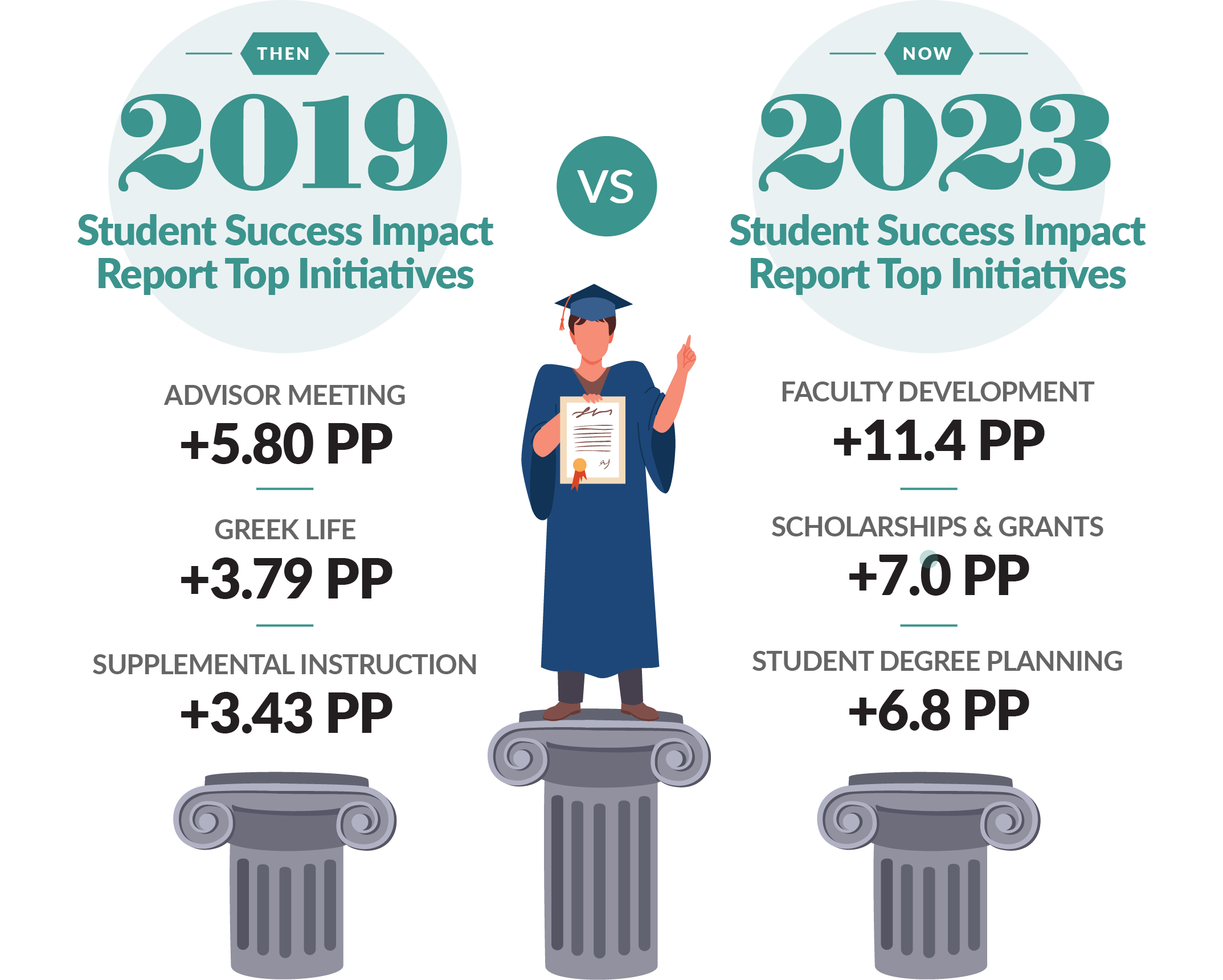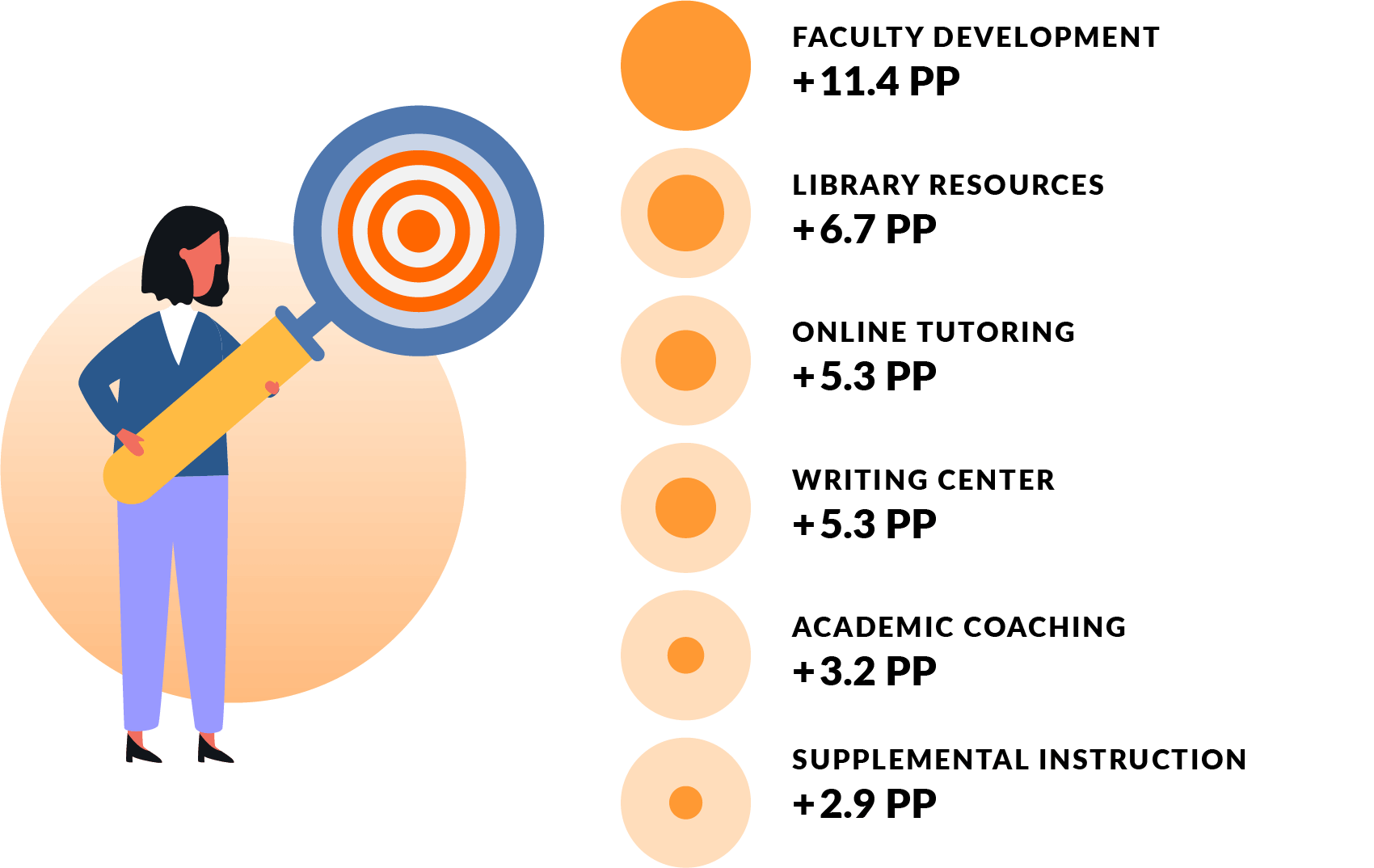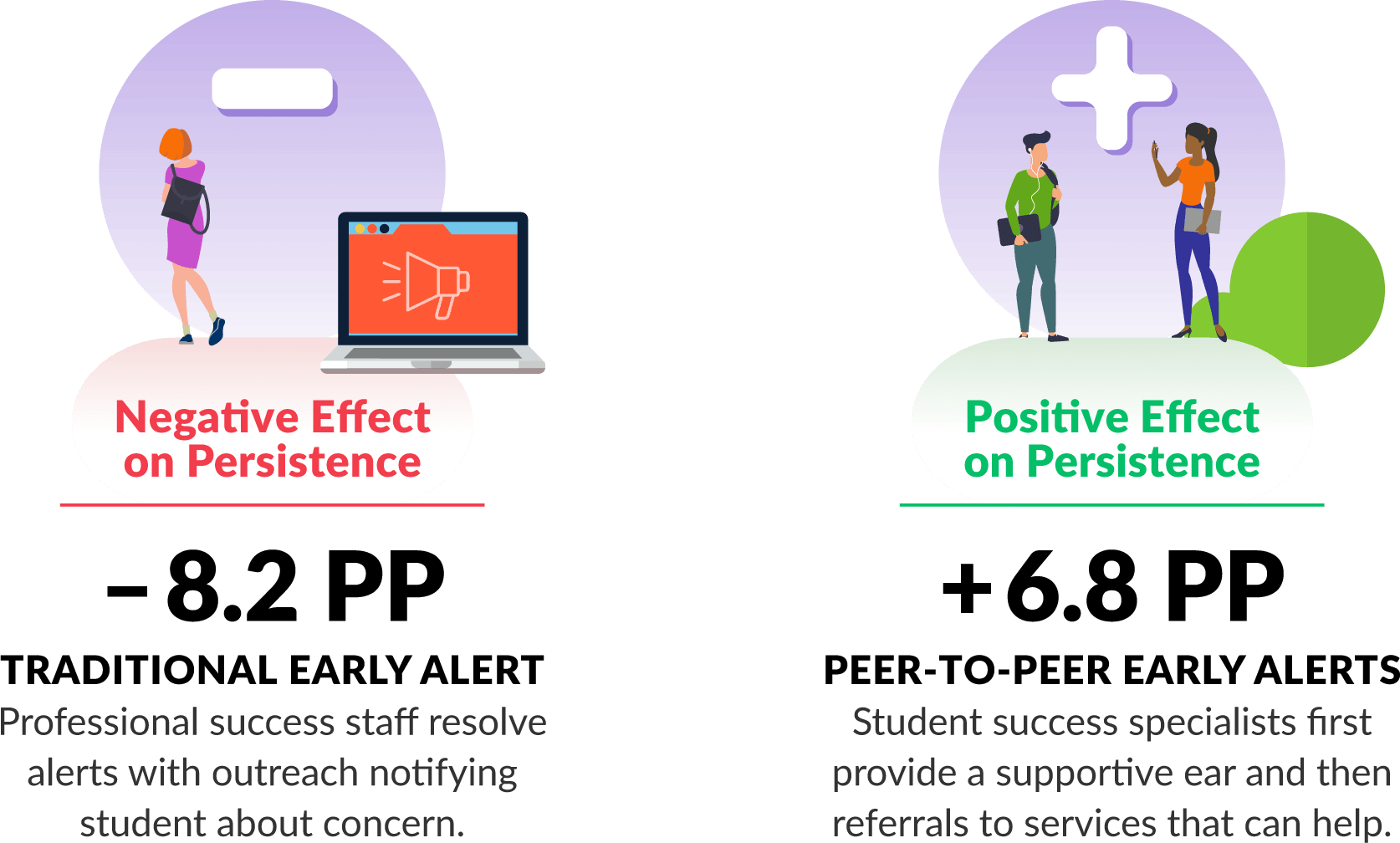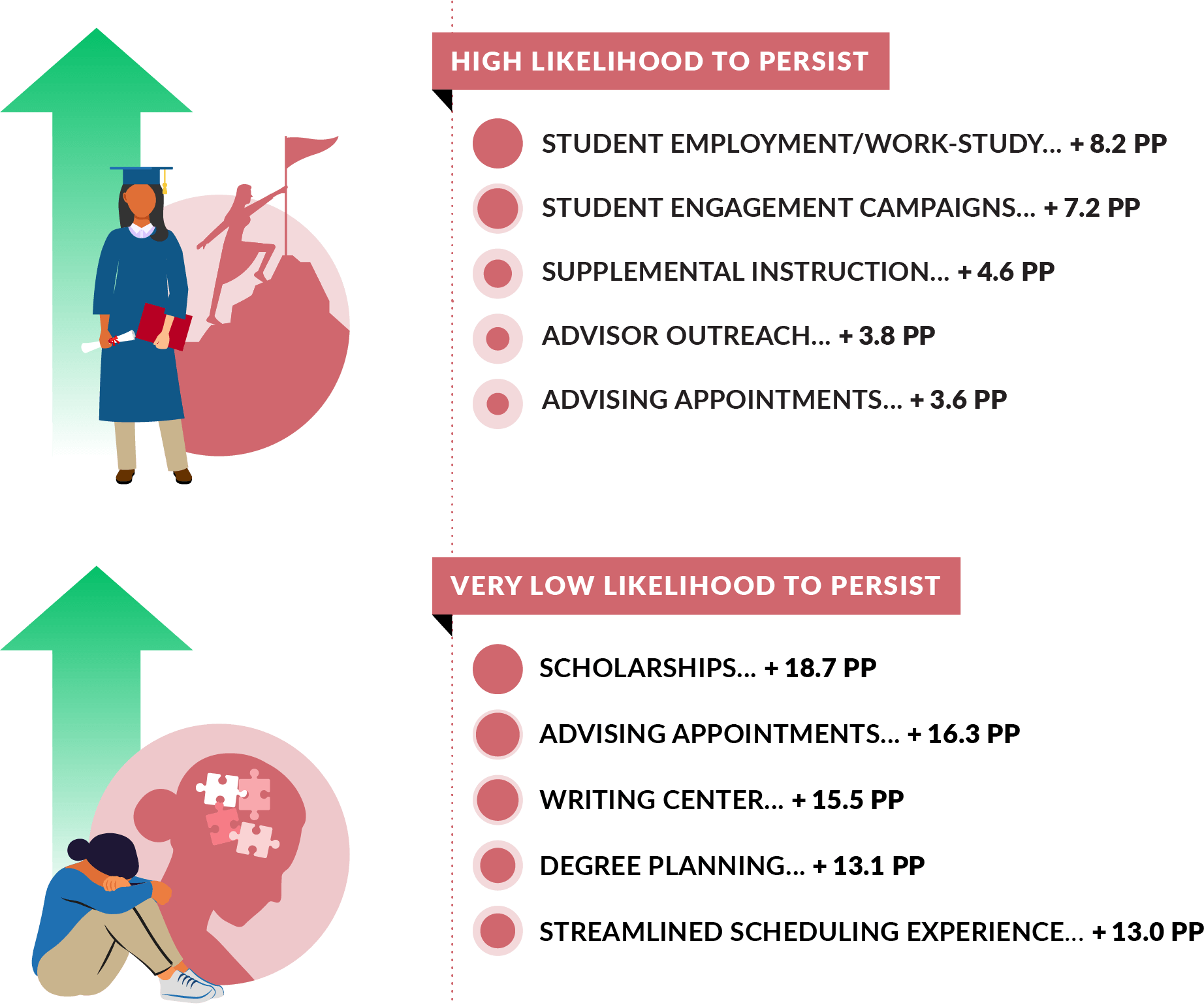
Sponsored by Civitas Learning
In the latest Student Success Impact Report, Civitas
Learning examined a range of student success services, from advising appointments to library resources, to identify key trends and insights across our partners. This analysis spans 18 months between the summer of 2021 and the end of the calendar year
2022. It encompasses over 500 initiatives across 48 institutions, serving 3.9 million students.
The full 28-page report shares many findings, from high-impact practices to cautionary tales about strategies that may cause more harm than good. The impact is measured using the percentage-point (PP) lift that each type of initiative had on persistence, a leading indicator of student
success.
Here we share a few highlights from our community:
Invest in Faculty Development
Well-Designed Early Alert Programs Matter
Student-Driven Degree Planning Works Best
Cultivate Belonging and Connection
Different Students Benefit from Different Services
Student success impact shifts in recent years

Although many top practices from 2019 still significantly impact student persistence in 2023, investment in supports that focus on supporting students throughout the entire student experience made the most impact across the Civitas Learning community.
Faculty Development is one of the most impactful investments for student persistence

Analysis of effective community practice sends a clear message – Stronger faculty are good for student success:
Investment in faculty training and certification yielded a significant increase in persistence
Because faculty are the primary connection point for many students, well-trained faculty can significantly impact success
Prioritizing student connection & intentional implementation are critical for Early Alert Programs

Analysis of early alert programs revealed they can often negatively impact student success. The design and implementation of early alert programs are critical to:
Successfully engage students and cultivate a sense of community and belonging
Feasibly operationalize programs for leaders and their teams
Sustainably allow advisors and other professionals to take meaningful action
Student-prepared degree planning promotes persistence more than advisor-prepared plans
Advisors preparing degree plans for students might seem like an easy way to keep students on track. Our analysis shows that advisor-designed degree plans can harm student success.
Instead, when students take the lead in their degree planning with the support of an advisor we see the following:
Allows them to take an active role in preparing for their future
Improves their understanding of their degree program requirements
Fosters connection and communication with their advisor

Cultivating belonging & connection are integral components of holistic support

There is a growing trend among institutions to emphasize students’ connections to their peers and school. Findings from the Civitas Learning community revealed:
Experiences that build engagement and interaction with the institution promote belonging
Positive student experiences are critical to success, and investment in a combination of strategies that support the whole student can significantly improve persistence
Different students benefit from different support services & interventions

The student success work of our partners across 3.9 million students reminds us that different students benefit from different supports. By analyzing student data for different populations, institutions can:
Move beyond one-size-fits-all student success methods by targeting how they market their offerings, organize their programs, and engage their students
Maximize their investment by ensuring that the right combination of interventions reaches the right students
Realize cumulative benefits from their student success programs, with the capability to measure how different students respond to interventions over time and adjust accordingly